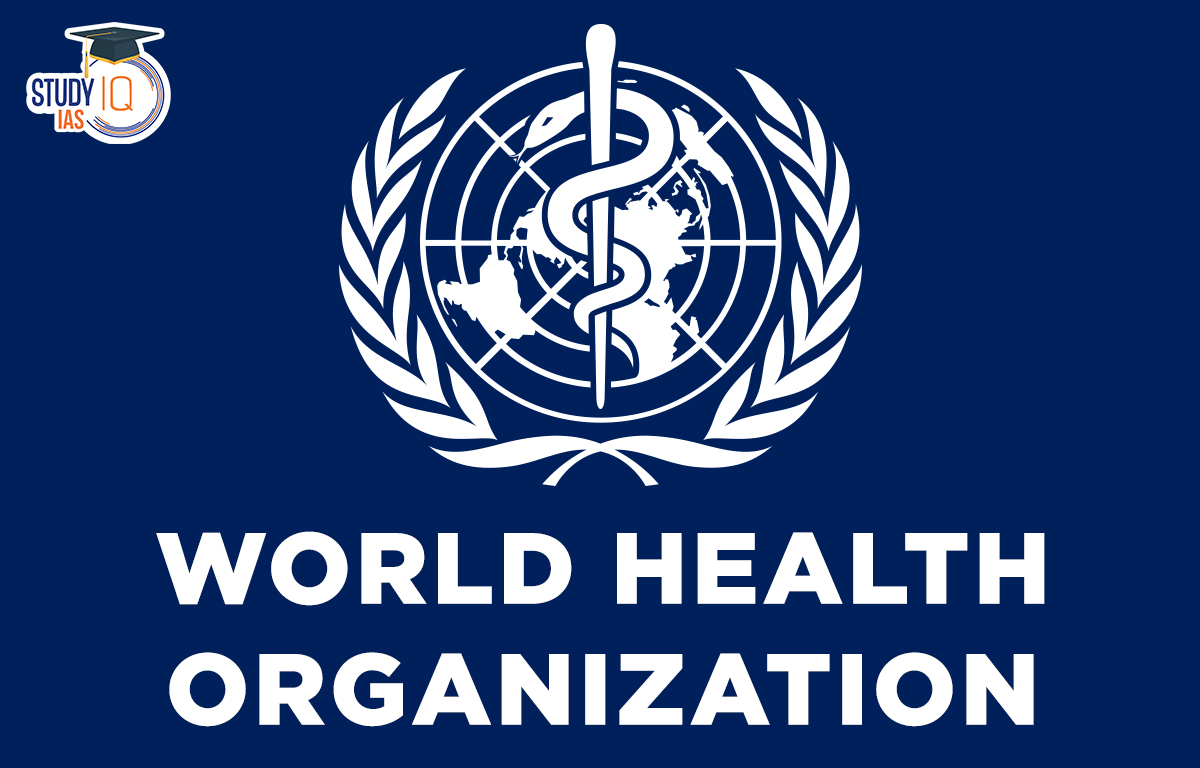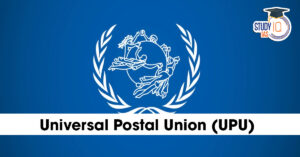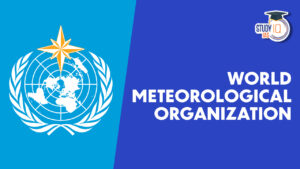Table of Contents
World Health Organization (WHO)
The World Health Organization (WHO) is a UN agency founded in 1948 to improve global public health. It aims for “the highest possible level of health” for everyone and defines health as complete physical, mental, and social well-being. WHO is based in Geneva and is governed by the World Health Assembly, which meets annually, and an Executive Board of health experts. The organization is led by a director general, supported by deputies and specialists in various health areas.
Each year, April 7 marks World Health Day, celebrating its establishment. The UPSC Syllabus includes the World Health Organization or WHO as a significant topic for the UPSC Exam. The UPSC Mock Test can help candidates prepare for the exam with more precision.
World Health Organization History
The offices of the World Health Organization are in Geneva, Switzerland. There are six regional agencies, 150 country offices, and 194 Member States. It collaborates with its member nations through the Ministries of Health, which are intergovernmental organizations.
The WHO takes the lead in matters of global health, directing the direction of health research, establishing norms and standards, outlining evidence-based policy options, offering technical assistance to developing nations, and observing and analyzing health patterns. It started operating on April 7, 1948, which is now observed as World Health Day each year.
Objectives of WHO
The goal of the World Health Organization is to serve as the overseeing and coordinating body for all foreign health efforts. Its goal is to establish and maintain effective partnerships with the United Nations, specialized organizations, national health agencies, trade associations, and any other organizations. The WHO works in a complex world where public health overlaps with many other areas that affect health. To meet these challenges, they follow a six-point agenda focused on improving women’s health and health in Africa.
- Promoting Development: Health is important for progress, and more resources are being invested. However, poverty still leads to poor health. WHO prioritizes helping disadvantaged groups to achieve health goals, treat chronic diseases, and tackle neglected tropical diseases.
- Fostering Health Security: Health threats, like disease outbreaks, require collective action. Factors like urbanization and environmental issues contribute to these outbreaks. WHO has strengthened global defenses against such threats since the new International Health Regulations were introduced in 2007.
- Strengthening Health Systems: To improve health and reduce poverty, services must reach underserved populations. WHO focuses on training staff, ensuring funding, collecting vital data, and providing access to essential medicines.
- Harnessing Research and Evidence: Evidence is key for setting priorities and measuring success. WHO gathers health information to create standards, and policy options, and monitor global health.
- Enhancing Partnerships: WHO collaborates with many partners, including UN agencies and donors, to align efforts with best practices and national priorities.
- Improving Performance: WHO is reforming to be more efficient and effective. They focus on creating a motivating work environment for their staff and use results-based management to measure success at all levels.
World Health Organization Funding
WHO receives money primarily from two sources: voluntary contributions from Member States and other partners, as well as assessed contributions from Member States (countries’ membership dues). Assessed contributions (AC) represent a portion of a nation’s GDP. (the percentage is agreed upon by the United Nations General Assembly).
At the World Health Assembly, which happens every two years, Member States approve the budget. They only cover less than 20% of the total budget. The rest of the funding for the WHO comes from voluntary contributions, mainly from Member States, but also from other UN agencies, governments, charities, businesses, and other sources.
World Health Organization Governance
World Health Assembly
The World Health Assembly (WHA) is responsible for making decisions for the World Health Organization (WHO). Delegates from all WHO Member States participate in the assembly, which focuses on a health agenda set by the Executive Board. Its main duties include establishing policies, selecting the Director-General, overseeing financial practices, and approving budgets. The WHA meets annually in Geneva, Switzerland.
Executive Board
The Executive Board has 34 members, chosen for three-year terms based on their expertise. Each January, they meet to decide the agenda and resolutions for the World Health Assembly. In May, a shorter meeting follows the Health Assembly. The Board’s main tasks are to implement the Assembly’s decisions, provide advice, and support its work.
Membership and Associate Membership
Members of the Organization may also be United Nations Members. The Health Assembly may accept territories or groups of territories that are not in charge of managing their international relations as Associate Members.
World Health Organization Contribution
- Country Offices: WHO’s main contact points with governments are its country offices, which relay requests, share international standards, provide professional assistance, and inform governments about disease outbreaks.
- Focus on Infectious Diseases: In its first decade (1948–1958), WHO concentrated on diseases like TB, malaria, and yaws, while also prioritizing medication standardization, sanitation, and maternal and child health.
- Impact of African Independence: The independence of many African nations (1958–1968) affected WHO’s work, especially during the 1960 crisis when foreign doctors left the Democratic Republic of the Congo.
- Smallpox Eradication: In the third decade (1968–1978), WHO successfully coordinated efforts to eradicate smallpox, which affected millions and was still present in 31 countries in 1967.
- Alma Ata Conference: The fourth decade (1978–1988) began with the Alma Ata conference, which highlighted the importance of primary healthcare as the best approach for national health policy, moving away from an overemphasis on high-tech solutions.
Read more: UNICEF
World Health Organization Challenges
Instead of receiving guaranteed money from nations, the WHO has relied on donations, primarily from wealthy nations and foundations like the Bill and Melinda Gates Foundation. As a consequence, donors currently decide which programs to fund with 80% of WHO funding. Work programs that are essential to the WHO’s mission are still underfunded because they conflict with the interests of major contributors, particularly those of wealthy and developed nations.
As a result, other intergovernmental organizations like the World Bank and large foundations have progressively taken over WHO’s position as a global health leader. The organization’s effectiveness has been questioned, particularly in light of its subpar response to the 2014 West African ebola epidemic.
World Health Organization UPSC
The indispensable task of integrating global resources falls to the World Health Organization (WHO), the biggest healthcare coordination organization in the world. The only group with such a broad scope is this one. The WHO’s decision-making authority is the World Health Assembly. Delegations from all WHO Member States are present, and it concentrates on a particular health agenda created by the Executive Board. Students can read all the details related to UPSC by visiting the official website of StudyIQ UPSC Online Coaching.


 United Nations General Assembly (UNGA), ...
United Nations General Assembly (UNGA), ...
 Universal Postal Union (UPU), Objective,...
Universal Postal Union (UPU), Objective,...
 World Meteorological Organisation (WMO),...
World Meteorological Organisation (WMO),...

























